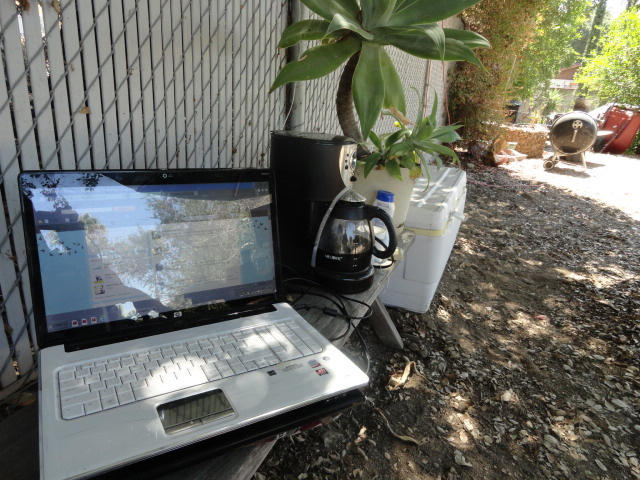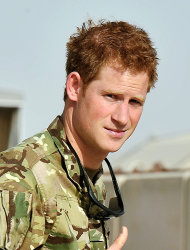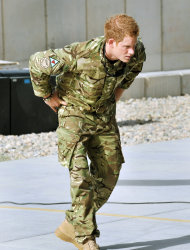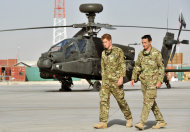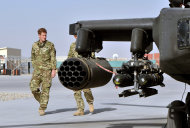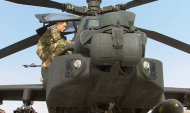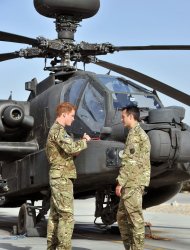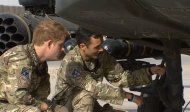hahahahahahahahahahaha!
Men and Women Can't be 'Just Friends'
By Adrian F. Ward | Scientific American – 23 hrs ago
Can heterosexual men and women ever be “just friends”? Few other questions have provoked debates as intense, family dinners as awkward, literature as lurid, or movies as memorable. Still, the question remains unanswered. Daily experience suggests that non-romantic friendships between males and females are not only possible, but common—men and women live, work, and play side-by-side, and generally seem to be able to avoid spontaneously sleeping together. However, the possibility remains that this apparently platonic coexistence is merely a façade, an elaborate dance covering up countless sexual impulses bubbling just beneath the surface.
New research suggests that there may be some truth to this possibility—that we may think we’re capable of being “just friends” with members of the opposite sex, but the opportunity (or perceived opportunity) for “romance” is often lurking just around the corner, waiting to pounce at the most inopportune moment.
In order to investigate the viability of truly platonic opposite-sex friendships—a topic that has been explored more on the silver screen than in the science lab—researchers brought 88 pairs of undergraduate opposite-sex friends into…a science lab. Privacy was paramount—for example, imagine the fallout if two friends learned that one—and only one—had unspoken romantic feelings for the other throughout their relationship. In order to ensure honest responses, the researchers not only followed standard protocols regarding anonymity and confidentiality, but also required both friends to agree—verbally, and in front of each other—to refrain from discussing the study, even after they had left the testing facility. These friendship pairs were then separated, and each member of each pair was asked a series of questions related to his or her romantic feelings (or lack thereof) toward the friend with whom they were taking the study.
The results suggest large gender differences in how men and women experience opposite-sex friendships. Men were much more attracted to their female friends than vice versa. Men were also more likely than women to think that their opposite-sex friends were attracted to them—a clearly misguided belief. In fact, men’s estimates of how attractive they were to their female friends had virtually nothing to do with how these women actually felt, and almost everything to do with how the men themselves felt—basically, males assumed that any romantic attraction they experienced was mutual, and were blind to the actual level of romantic interest felt by their female friends. Women, too, were blind to the mindset of their opposite-sex friends; because females generally were not attracted to their male friends, they assumed that this lack of attraction was mutual. As a result, men consistently overestimated the level of attraction felt by their female friends and women consistently underestimated the level of attraction felt by their male friends.
Men were also more willing to act on this mistakenly perceived mutual attraction. Both men and women were equally attracted to romantically involved opposite-sex friends and those who were single; “hot” friends were hot and “not” friends were not, regardless of their relationship status. However, men and women differed in the extent to which they saw attached friends as potential romantic partners. Although men were equally as likely to desire “romantic dates” with “taken” friends as with single ones, women were sensitive to their male friends’ relationship status and uninterested in pursuing those who were already involved with someone else.
These results suggest that men, relative to women, have a particularly hard time being “just friends.” What makes these results particularly interesting is that they were found within particular friendships (remember, each participant was only asked about the specific, platonic, friend with whom they entered the lab). This is not just a bit of confirmation for stereotypes about sex-hungry males and naïve females; it is direct proof that two people can experience the exact same relationship in radically different ways. Men seem to see myriad opportunities for romance in their supposedly platonic opposite-sex friendships. The women in these friendships, however, seem to have a completely different orientation—one that is actually platonic.
To the outside observer, it seems clear that these vastly different views about the potential for romance in opposite-sex friendships could cause serious complications—and people within opposite-sex relationships agree. In a follow-up study, 249 adults (many of whom were married) were asked to list the positive and negative aspects of being friends with a specific member of the opposite sex. Variables related to romantic attraction (e.g., “our relationship could lead to romantic feelings”) were five times more likely to be listed as negative aspects of the friendship than as positive ones. However, the differences between men and women appeared here as well. Males were significantly more likely than females to list romantic attraction as a benefit of opposite-sex friendships, and this discrepancy increased as men aged—males on the younger end of the spectrum were four times more likely than females to report romantic attraction as a benefit of opposite-sex friendships, whereas those on the older end of the spectrum were ten times more likely to do the same.
Taken together, these studies suggest that men and women have vastly different views of what it means to be “just friends”—and that these differing views have the potential to lead to trouble. Although women seem to be genuine in their belief that opposite-sex friendships are platonic, men seem unable to turn off their desire for something more. And even though both genders agree overall that attraction between platonic friends is more negative than positive, males are less likely than females to hold this view.
So, can men and women be “just friends?” If we all thought like women, almost certainly. But if we all thought like men, we’d probably be facing a serious overpopulation crisis.
I COULD HAVE TOLD YOU THIS TOO!!!!!
this is so totally mudinyoureyes!
























